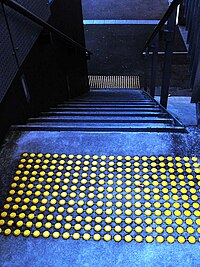
Photo from wikipedia
How do our bodies influence who we are? Recent research in cognitive neuroscience has examined consciousness associated with the self and related multisensory processing of bodily signals, the so-called bodily… Click to show full abstract
How do our bodies influence who we are? Recent research in cognitive neuroscience has examined consciousness associated with the self and related multisensory processing of bodily signals, the so-called bodily self-consciousness. A parallel line of research has highlighted the concept of the autobiographical self and the associated autonoetic consciousness, which enables us to mentally travel in time. The subjective re-experiencing of past episodes is described as re-living them from within or outside one’s body. In this brief perspective, I aim to explore the underlying characteristics of self-consciousness and its relation to bodily signals and episodic memory. I will outline some recent behavioral and neuroimaging evidence indicating that bodily cues play a fundamental role in autobiographical memory. Finally, I will discuss these emerging concepts regarding the current understanding of bodily-self, autobiographical-self, their links to self-consciousness, and suggest directions for future research.
Journal Title: Frontiers in Psychology
Year Published: 2022
Link to full text (if available)
Share on Social Media: Sign Up to like & get
recommendations!